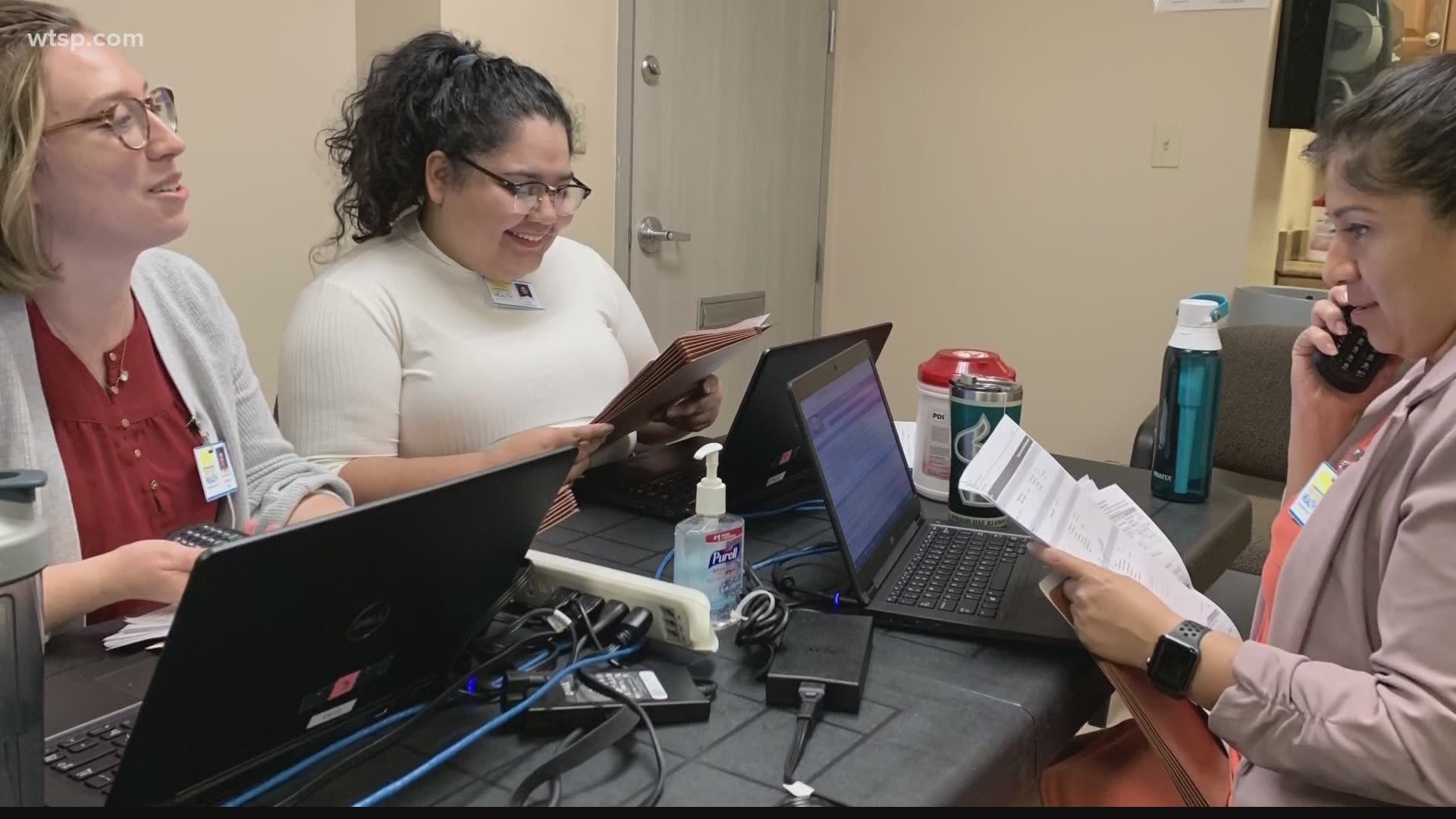TAMPA, Fla. — Contact tracing is a critical function of public health. The people behind the tracing act almost as virus “detectives.”
Contact tracing is the process of tracking down individuals who are infected with a particular communicable disease and then tracing where they’ve been to determine who else might’ve been exposed.
Those individuals can then be alerted, tested and quarantined to stop further spread. That includes family, friends, significant others and strangers.
RELATED: What is contact tracing?
The tracers are usually trained staff members who interview those who test positive for COVID-19 and then alert the people who the infected person may have been in contact with. The contact tracers sometimes recommend those people self-isolate or quarantine themselves to prevent further spread.
The National Association of County and City Health Officials recommends 30 contact tracers per 100,000 people during the COVID-19 crisis. Typically during non-emergency times, the experts recommend 15 tracers per 100,000 people.
When the global pandemic first hit, Florida had 500 contact tracers. That’s about 2.3 tracers per every 100,000 people.
"The best use of contact tracers is when you have a lull in disease and you can try and get your arms around it to try and prevent it from spiking. I think that’s why it’s critical to have those people in place before," explained Dr. Marissa Levine, a professor of public health at the USF College of Public Health.
As of June 26, the Florida Department of Health has hired 359 additional epidemiologists plus other contact tracers totaling to 1,600 DOH employees.
A spokesperson told 10 Tampa Bay the DOH also brought on a third-party agency with 600 more staffers for a grand total of "more than 2,200 individuals involved in contact tracing," according to Alberto Moscoso, the Communications Director with the Florida Department of Health.
That means Florida has roughly 10.2 contact tracers per 100,000 people, less than half the recommendation from NACCHO.
"In places like the Tampa Bay region where it’s spiking pretty significantly right now, it is going to be really hard for contact tracers to keep up certainly with current numbers and even if you augment it, we’re really behind the eight ball quite frankly."
The Department of Health sent 10 Tampa Bay this response:
"This is successfully meeting the current operational demand, which is reassessed daily as additional cases are confirmed through the state’s rapidly expanding testing capabilities. The Department is prepared to further expand the number of contact tracers, if necessary, based on operational need."
- Florida suspends drinking at all bars statewide as COVID-19 continue to spike
- Florida adds another 8,942 new COVID-19 cases, the highest single-day spike yet
- Police chief: Auburndale officer shot, 1 man dead after traffic stop escalates
- Man breaks into Tampa car dealership, sets it on fire
- Vice President Pence to bring 'Faith in America' tour to Sarasota next week
- Florida's COVID-19 testing slowed as cases spiked
- 'We should not be asked to be unarmed, unbadged policemen," local business owner says of Hillsborough's new mask order
►Stay In the Know! Sign up now for the Brightside Blend Newsletter



